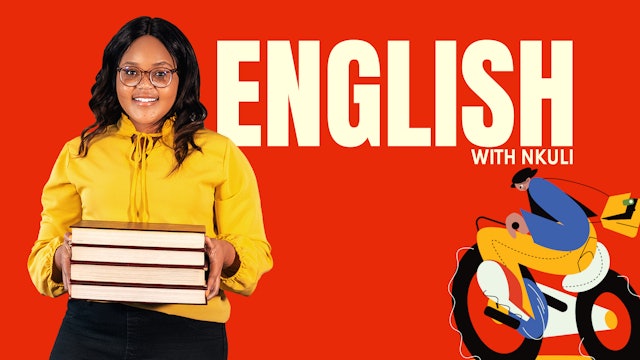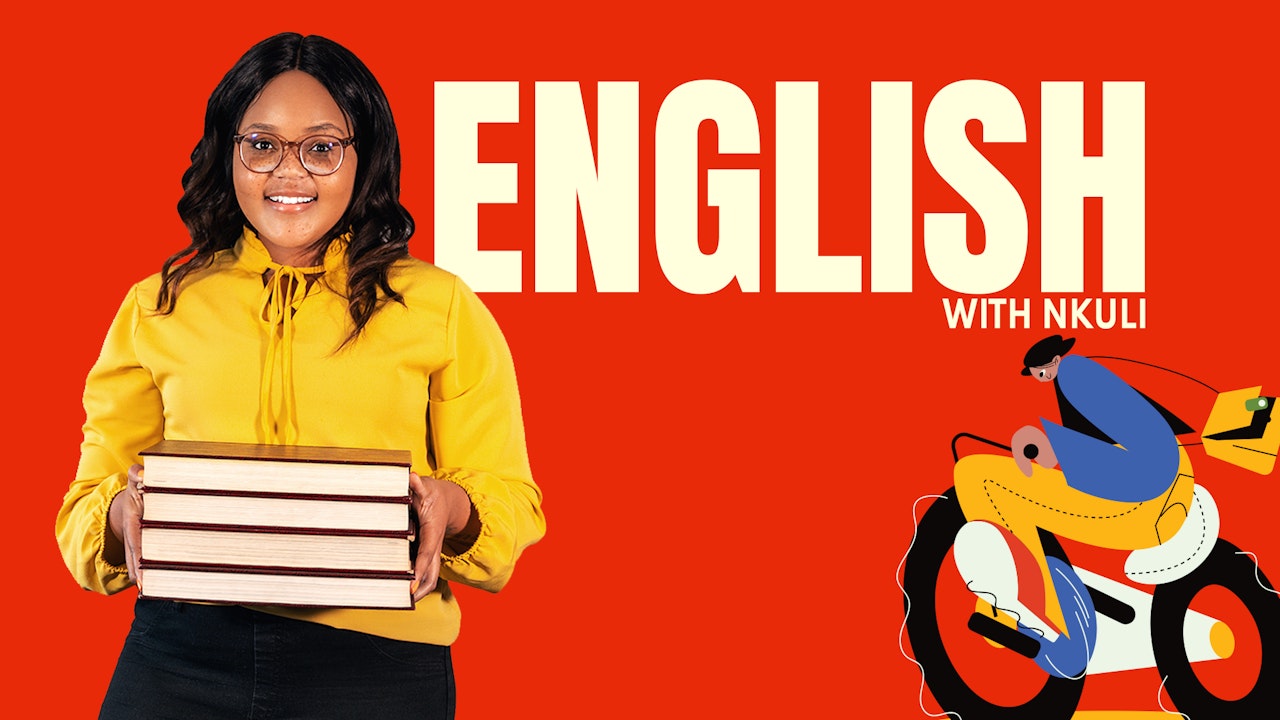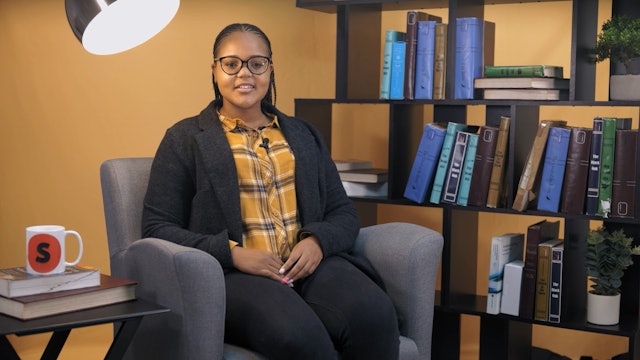Grade 8 English
4 Seasons
English is the most common language used across the globe in various interactions whether it be on the internet, in entertainment, first encounters, in business or politically. For this reason, it is important to be able to speak, read and write it correctly. This subject produces students who are able to think critically and creatively, practice various verbal skills, develop research skills and develop an appreciation for poetry and literature. Students also gain sound general knowledge while staying up to date with current affairs.
-
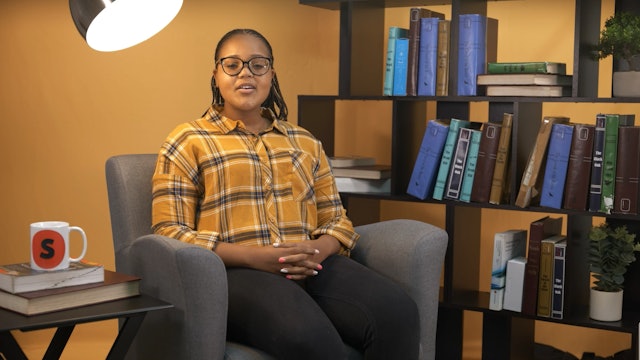 06:56Episode 1
06:56Episode 1Poetry:Simile analysis
Episode 1
Tackling unseen poems can be uncomfortable and difficult. A simple acronym like ‘SMILE’ can help approach analysing a poem by focusing on the important aspects of a poem. Each letter stands for a separate poetic element, namely: structure, meaning, imagery, language and effect, which will be intr...
-
‘Homage to my hips’ by Lucile Clifton seen poetry
Episode 2
Using the ‘SMILE’ analysis this lesson will look at how to tackle an unseen poem, with close reference to ‘homage to my hips’ by Lucile Clifton. This poem is an empowering celebration of womanhood, whereby the speaker defies traditional beauty standards that demand women to be ‘fit’ and thin.
-
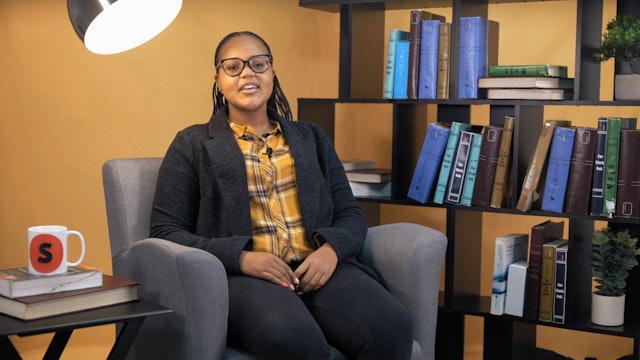 08:57Episode 3
08:57Episode 3Direct and indirect speech
Episode 3
Direct and indirect speech is what we use to talk about what someone has said. This can be done by repeating the exact words spoken (direct speech) or by reporting the words spoken (indirect speech). In this lesson, we will look at the difference between the two and look at a few rules to help co...
-
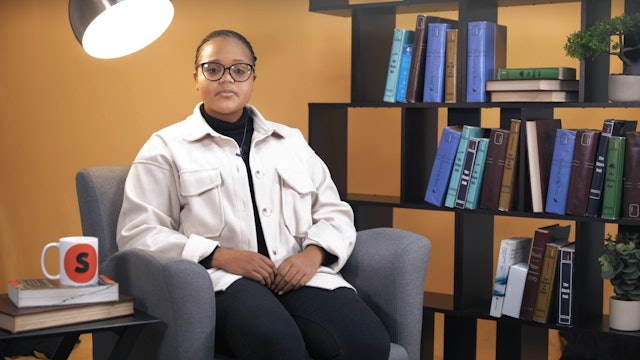 08:32Episode 4
08:32Episode 4Active and passive voice
Episode 4
Active and passive voice looks at the form of the verb that indicates whether the subject performs the action or is the receiver of the action. In this lesson, we will look at the difference between active and passive voice and look at steps that help us change active to passive voice and vice ve...
-
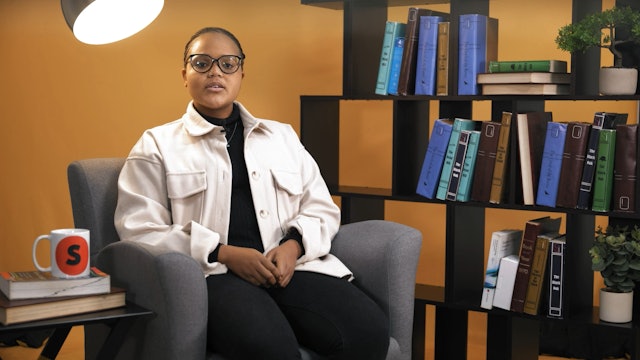 10:14Episode 5
10:14Episode 5Cartoon analysis
Episode 5
Visual literacy requires learners to make meaning from images. This lesson, we will focus on cartoons, and look at the language devices used to create deeper meaning such as humour, satire, wit or even irony, in order to develop learners’ critical skills.
-
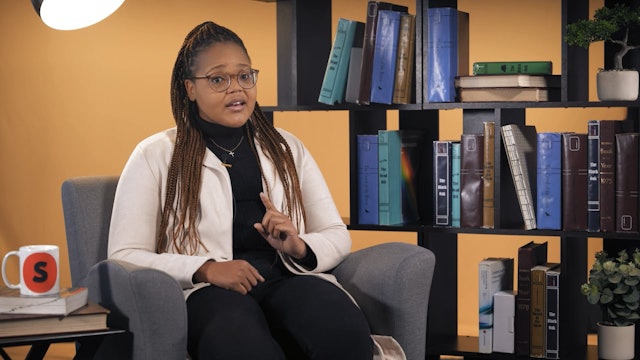 08:24Episode 6
08:24Episode 6Descriptive Essay
Episode 6
Descriptive writing involves paying close attention to the details by using all of your five senses, in order to make your essay more interesting and engaging. In this lesson we will use our five senses to develop a descriptive piece.
-
 11:24Episode 7
11:24Episode 7PEEL paragraph (literature paragraph)
Episode 7
Peel paragraph is a method used for writing literature paragraphs, in order to help structure paragraphs in a way that presents a single, clear and focused argument. It ensures that every point/argument presented is followed by evidence, analysis and conclusion.
-
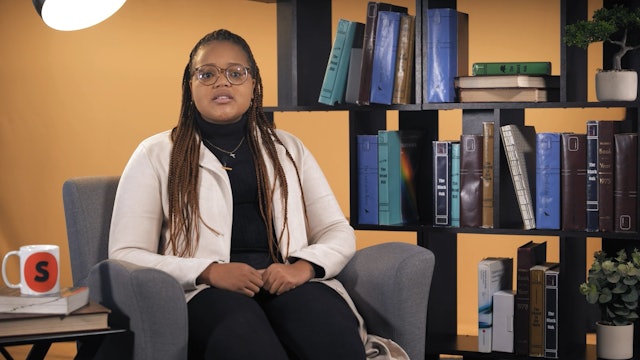 10:16Episode 8
10:16Episode 8Argumentative essay
Episode 8
This genre requires learners to analyse both sides of an argument in order to choose one stance and use evidence/ facts, in an attempt to persuade the reader. In this lesson we will look at how to formulate an argumentative essay by following a structure that includes: an introductory paragraph, ...
-
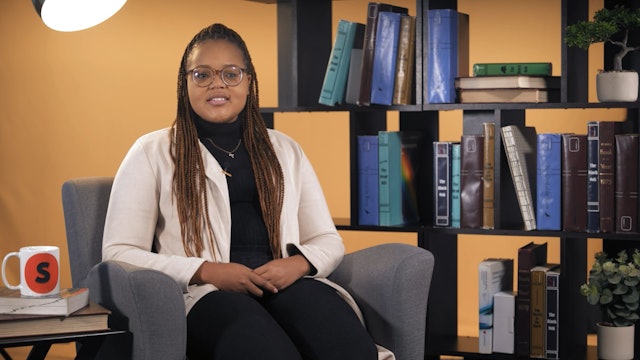 08:56Episode 9
08:56Episode 9Prepositions (part 1)
Episode 9
Preposition is a word or group of words that are used before a noun, pronoun or even a noun phrase to show direction, time, place, location and relationships. In this lesson, we will look at the different types of prepositions and look at ways in which to use them correctly.
-
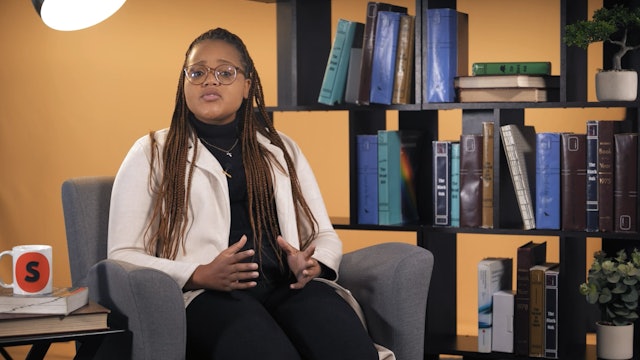 10:38Episode 10
10:38Episode 10Prepositions (part 2 )
Episode 10
Figure of speech is a word or phrase that possesses a figurative meaning, instead of a literal one. This lesson, we will look at the ‘shampoo’ figures of speech, which are: simile, hyperbole, apostrophe, metaphor, personification, oxymoron and onomatopoeia

